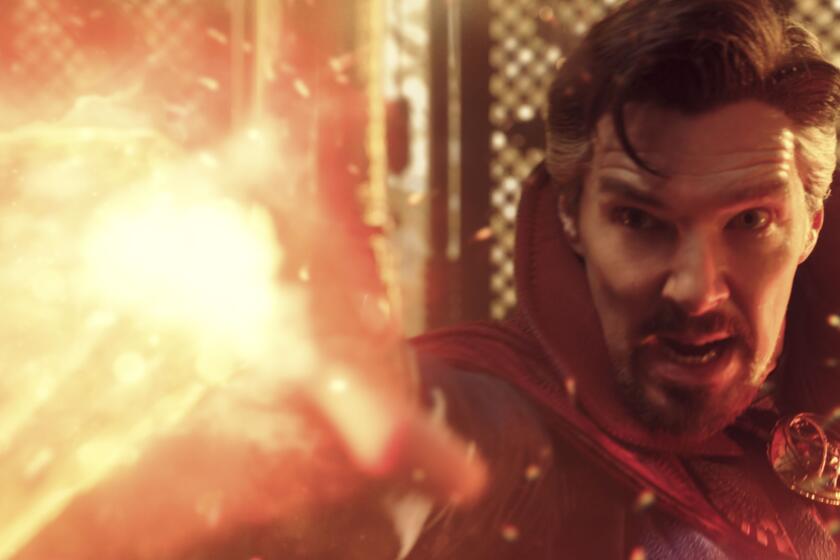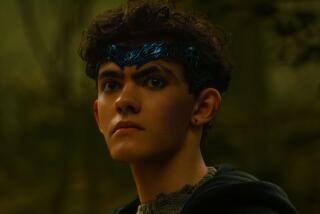Why ‘WandaVision’ fans will be ‘heartbroken’ by ‘Doctor Strange 2’
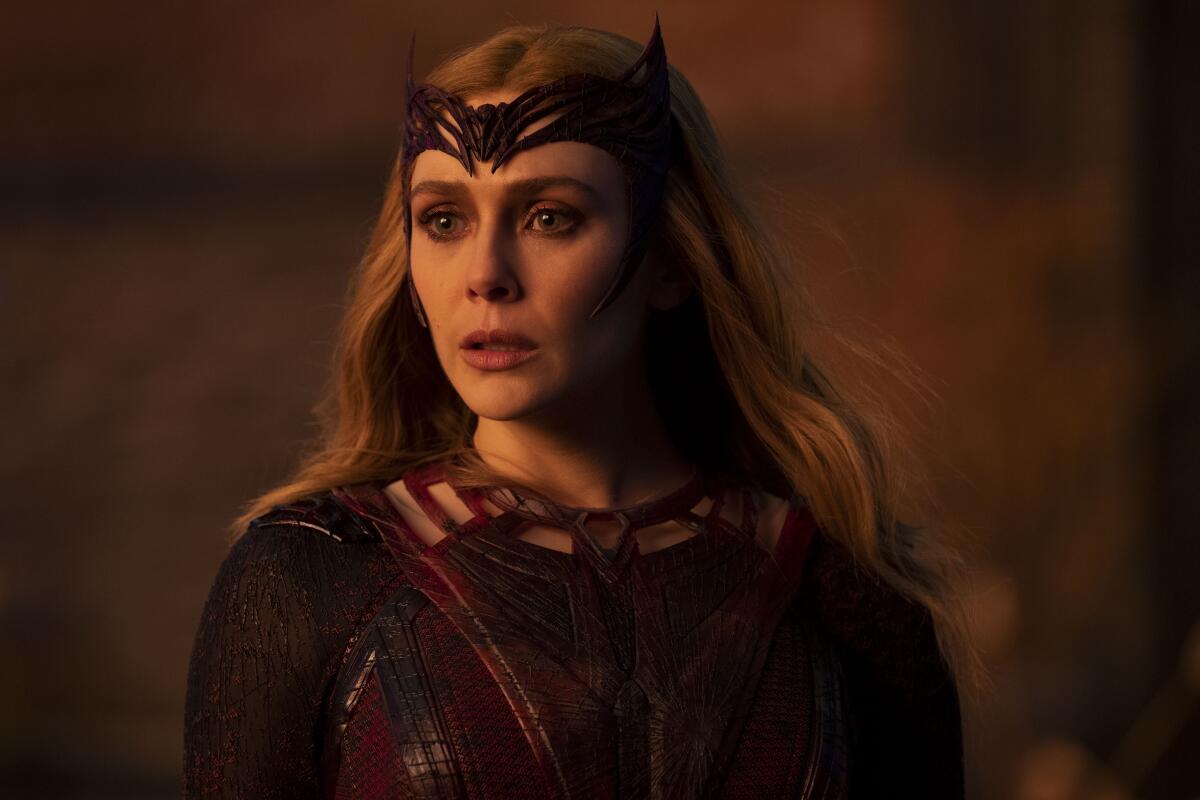
What is “Doctor Strange in the Multiverse of Madness” if not “WandaVision” persevering?
Marvel fans longing for a second season of “WandaVision” can take solace knowing that the latest “Doctor Strange” film — which premiered Monday night in Hollywood — essentially functions as a sequel to the Disney+ limited series.
In addition to continuing the titular sorcerer’s journey as protector of the universe — or universes, rather — the trippy superhero epic also builds directly upon the magic and the trauma of “WandaVision,” starring Elizabeth Olsen as Sokovian enchantress Wanda Maximoff.
Directed by “Spider-Man” veteran Sam Raimi, “Doctor Strange in the Multiverse of Madness” sees Olsen reprise her role as Wanda opposite Benedict Cumberbatch as Doctor Strange, Benedict Wong as Wong and newcomer Xochitl Gomez as America Chavez.
Sam Raimi brings an exuberant horror-movie grisliness to bear on this latest Marvel Cinematic Universe adventure.
“Wanda has always been a huge character, and people love Lizzie as Wanda, but ‘WandaVision’ expanded her. It made her more of a real character,” said “Multiverse of Madness” co-producer Mitch Bell at Monday’s premiere.
“The fans were excited about seeing her and where she goes after that.”
For anyone who missed the water-cooler moment that was “WandaVision” (or simply needs a refresher): The popular show saw Wanda cast a utopian hex over the suburban neighborhood of Westview, N.J., after losing her brother, Pietro, and her romantic partner, Vision, in battle.
Inside the hex, Wanda was able to temporarily escape her debilitating grief by conjuring an idyllic life with Vision and their twin sons, Billy and Tommy, that resembled her favorite family sitcoms. But if there’s anything both Wanda and Doctor Strange have learned, it’s that mortality-defying sorcery comes at a hefty price, and Wanda eventually was forced to return to a reality where her brother, partner and children don’t exist.
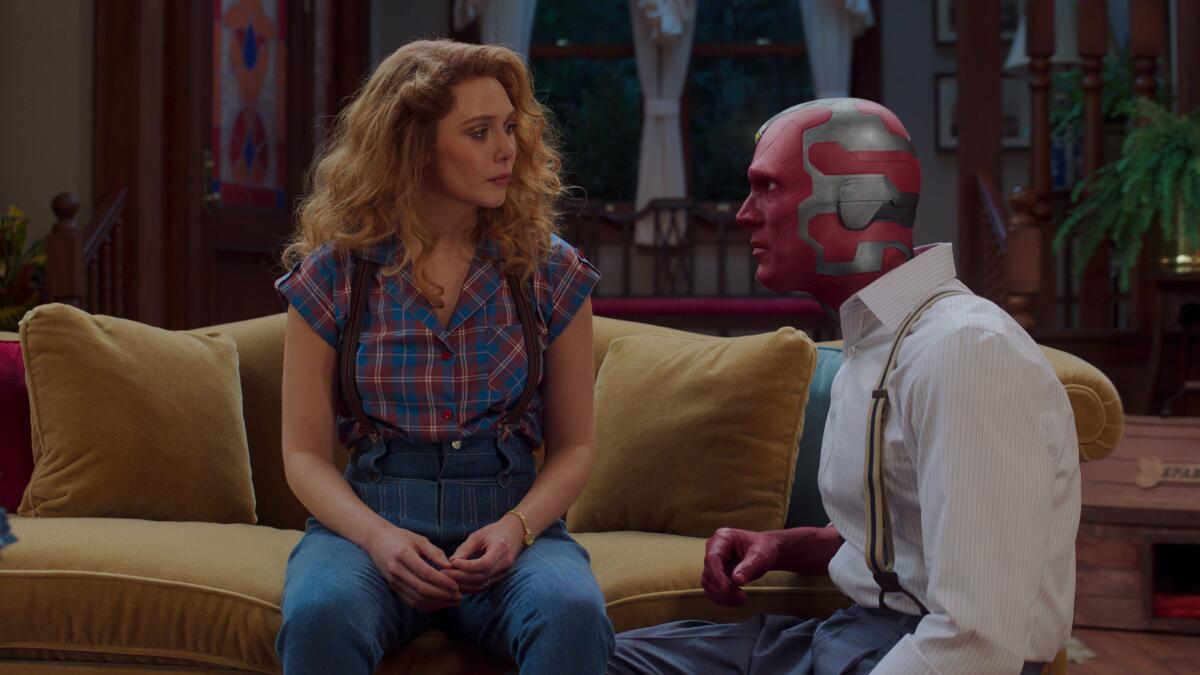
If that all sounds a little dark and profound for a Disney-owned superhero franchise, it was. The miniseries received 23 Emmy nominations, as well as critical acclaim for its allegorical depiction of the stages of grief, which continue to play a pivotal role throughout “Doctor Strange in the Multiverse of Madness.”
“Marvel, what we want to always do is heart and humor in the movies,” Bell said.
“You want to make sure that people laugh, and you want to make sure that people have a really good time. Adding the grief aspect of it just [means] more emotions. ... That [makes] fans more attached to the characters. ... They’re going to be heartbroken by a few things in this movie.”
The Disney+ series, which concludes Friday, mixed sitcom aesthetics, superhero stories and profound emotion. No wonder it’s the watercooler show of the moment.
While mapping the sprawling plot of “Doctor Strange in the Multiverse of Madness,” screenwriter Michael Waldron collaborated closely with the creative teams behind “WandaVision” and “Spider-Man: No Way Home” to ensure that his screenplay “did justice to everything that had come before.”
“All of ‘WandaVision,’ I thought that was just an incredible work,” Waldron told The Times. “And really, it scared me because I was like, ‘All right, I can’t ruin this now.’ They were passing me the baton.”
In “Multiverse of Madness,” Wanda no longer inhabits Westview but she is still visited by her young sons nightly in her dreams. Every morning, she wakes up to her worst nightmare. As “Multiverse” composer Danny Elfman put it at the premiere, Wanda’s story “is heartbreaking all the time.”
“Without giving away too much, the heart of Wanda and Wanda’s theme is about loss,” Elfman said. “She was such a great character to score and to follow. ... I never got tired of watching her.”
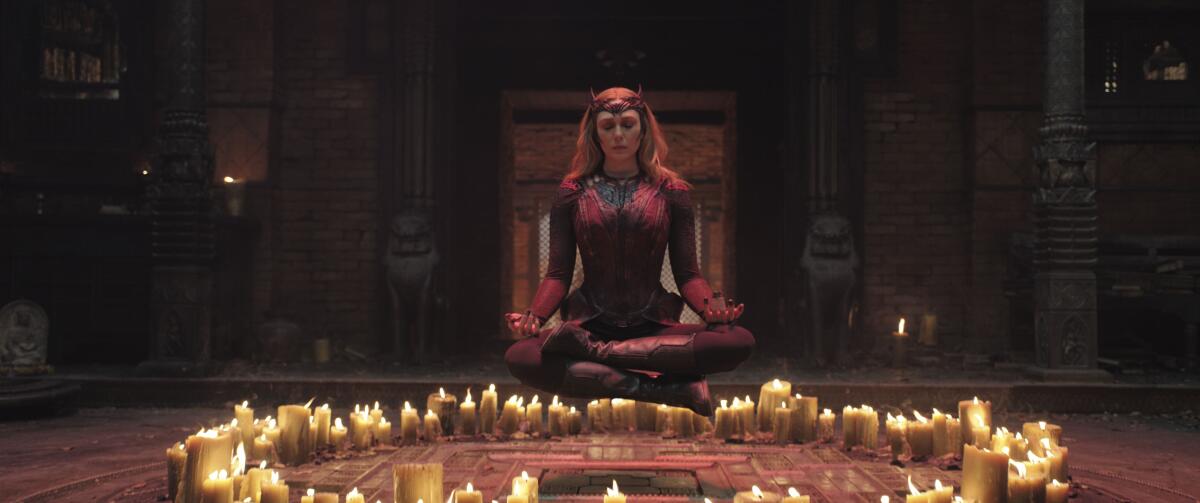
Waldron joked that, in order to get into Wanda’s devastated headspace and determine the next phase of her emotional arc, he watched sad movies and ordered “a bunch of pizza.”
“It’s compelling to put characters that you know really well through difficult seasons of loss,” Waldron said. “We’re always looking through that.”
“I don’t think grief is something that you move on from,” Olsen said at the premiere. “It’s something you just learn to live with.”
In Marvel’s “WandaVision,” nothing is as it seems. So we prepared an episode-by-episode guide to the Disney+ series for you to keep handy as you watch.
At the end of “WandaVision,” Olsen’s character finally begins to transform into her powerful alter ego, the Scarlet Witch. Now that she’s arrived, “Multiverse” makes it clear that the Scarlet Witch is here to stay in the Marvel Cinematic Universe.
“Where [Wanda] is right now is also accepting that she is this mythic woman, the Scarlet Witch,” Olsen said. “Someone who’s taking ownership of that power and has more confidence than we’ve ever seen before.”
Though it was “strange making choices without ‘WandaVision’ being out,” Olsen said it was “fun” and “exciting” to fully embrace the mystical force that is Scarlet Witch while filming “Doctor Strange in the Multiverse of Madness,” which opens in theaters Friday.
“It’s a different journey for the fans,” Olsen said. “I loved the way the new costume feels and looks. I loved the hair and makeup. ... We created an evolution of character.”
More to Read
Only good movies
Get the Indie Focus newsletter, Mark Olsen's weekly guide to the world of cinema.
You may occasionally receive promotional content from the Los Angeles Times.
